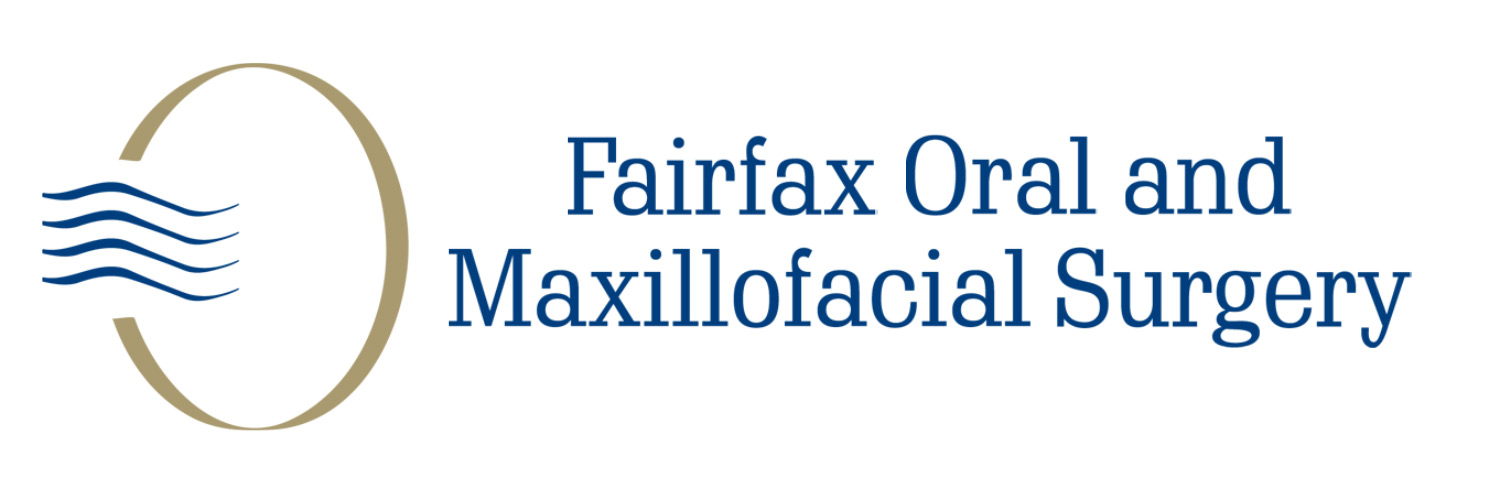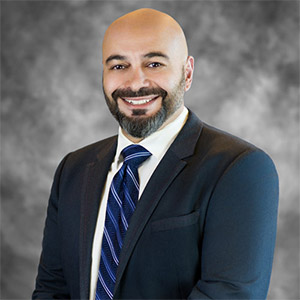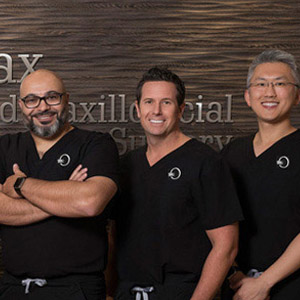Wisdom Teeth Removal
Wisdom Teeth Removal in Northern Virginia
The average adult will grow 32 teeth in their lifetime; 16 teeth on the top and 16 teeth on the bottom. The teeth in the front of the mouth (incisors, canine, and bicuspids) are ideal for biting food into small pieces. The back teeth (molars) are used to grind food up into a consistency capable of being swallowed and digested. Over time, our mouths have evolved to typically only have room to hold 28 teeth. As one can imagine, trying to fit four extra teeth in a mouth that has adapted to forego this extra space can be painful. These four extra teeth are your third molars, also known as “wisdom teeth,” and can be removed by our professional team here at Fairfax Oral & Maxillofacial Surgery. Keep reading to learn more.

Examination & Removal
With an oral examination and x-rays of the mouth, our doctors can evaluate the position of your wisdom teeth and predict if there are present or may be future issues. Studies prove early evaluation and treatment result in a superior outcome for the patient, so be sure to contact us immediately if you begin noticing your wisdom teeth erupting. Our doctors have the training, license, and experience to provide various types of anesthesia to make you feel at ease from start to finish. In most cases, removal is performed under local anesthesia, laughing gas (nitrous oxide/oxygen analgesia), or general anesthesia. These options and the potential surgical risks (i.e., sensory nerve damage, sinus complications) will be discussed with you before the procedure. If you’d like further information on wisdom tooth surgery, don’t hesitate to reach out to our seasoned team.
Why Wisdom Teeth Removal Is Necessary
As the last teeth to erupt within the mouth, it is common for wisdom teeth to not have the room they need to grow in properly. We frequently see wisdom teeth that have grown in sideways, partially emerged, even trapped beneath the gum and bone. Impacted wisdom teeth will typically try to take several positions in the bone as an attempt to find a pathway that allows them to erupt successfully, causing pain and damage to the surrounding gums and teeth. When they can only partially erupt, the opening around the teeth allows bacteria to grow and will eventually cause an infection. If you notice or feel your wisdom teeth growing in and begin experiencing the following symptoms, contact us to ask about our removal services:
- Swelling
- Stiffness
- Sore throat
- Fever
- Headache
- Jaw ache
- Pressure
- Shifting teeth
- Bleeding
- Irregular growths
Wisdom Teeth Removal FAQs
When Do People Get Wisdom Teeth?
Your wisdom teeth are the last molars to develop. Most people will develop wisdom teeth between the ages of 15 and 25. Wisdom teeth don’t always need to be removed, no matter the age they erupt. Sometimes, people never even develop these teeth.
Why Do People Get Their Wisdom Teeth Removed?
Though most people need to get their wisdom teeth extracted, some people get lucky. If wisdom teeth grow in healthy and are well-positioned, you do not need them removed. The problem is that most people’s wisdom teeth come in crooked or push the other teeth out of position, and they can also cause damage to the adjacent molar. It’s best to extract wisdom teeth when they harm the health of your mouth and other teeth.
Is Extraction Painful?
A wisdom teeth extraction isn’t painful during the procedure because we use local or and general anesthesia. Our state-of-the-art monitoring equipment ensures a patient’s safety and comfort during the operation.
What Are Impacted Wisdom Teeth?
An impacted wisdom tooth means it is growing in without enough room to erupt naturally in the gumline. Impacted wisdom teeth often cause cavities, infection, overcrowding, and cysts. Wisdom teeth often inflict pain as they push the teeth around them, causing issues.
Is Recovery Painful?
Wisdom teeth extraction recovery can be different for each patient. Depending on the impaction of the teeth and how many teeth are removed, a person might take a few days or a few weeks to recover. They may experience slight discomfort, pain, and swelling during this time. It’s important to rest and recover while your mouth heals.
When And What Can I Eat After Wisdom Teeth Extraction?
You can eat as soon as you feel comfortable after surgery. The best thing to do is start with soft foods like mashed potatoes, eggs, ice cream, and smoothies. Stay away from chewy and crunchy foods for the first two weeks. Do not use a straw for five days after surgery to help prevent dry sockets.
Contact Fairfax Oral & Maxillofacial Surgery For Wisdom Teeth Removal
Our compassionate, knowledgeable staff will help you through the wisdom teeth removal process. We’ll answer your questions and help you feel comfortable. Contact Fairfax Oral & Maxillofacial Surgery to schedule a consultation.
















